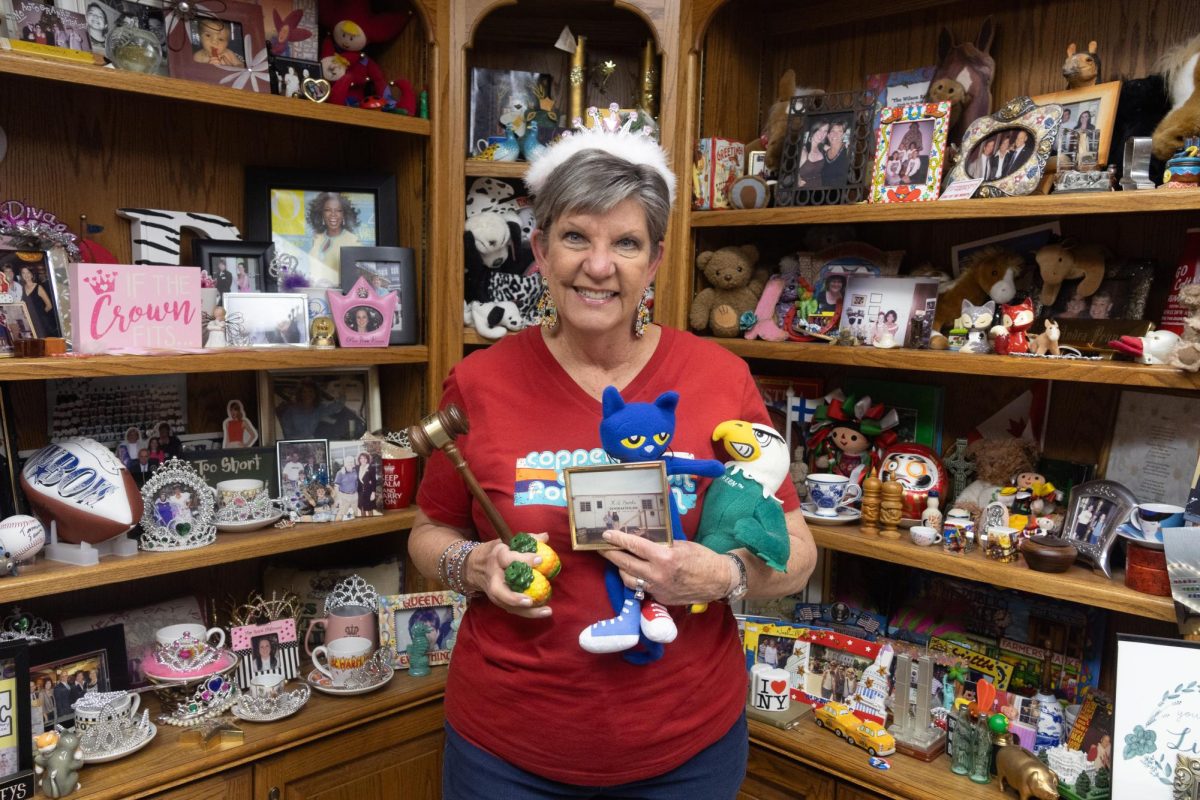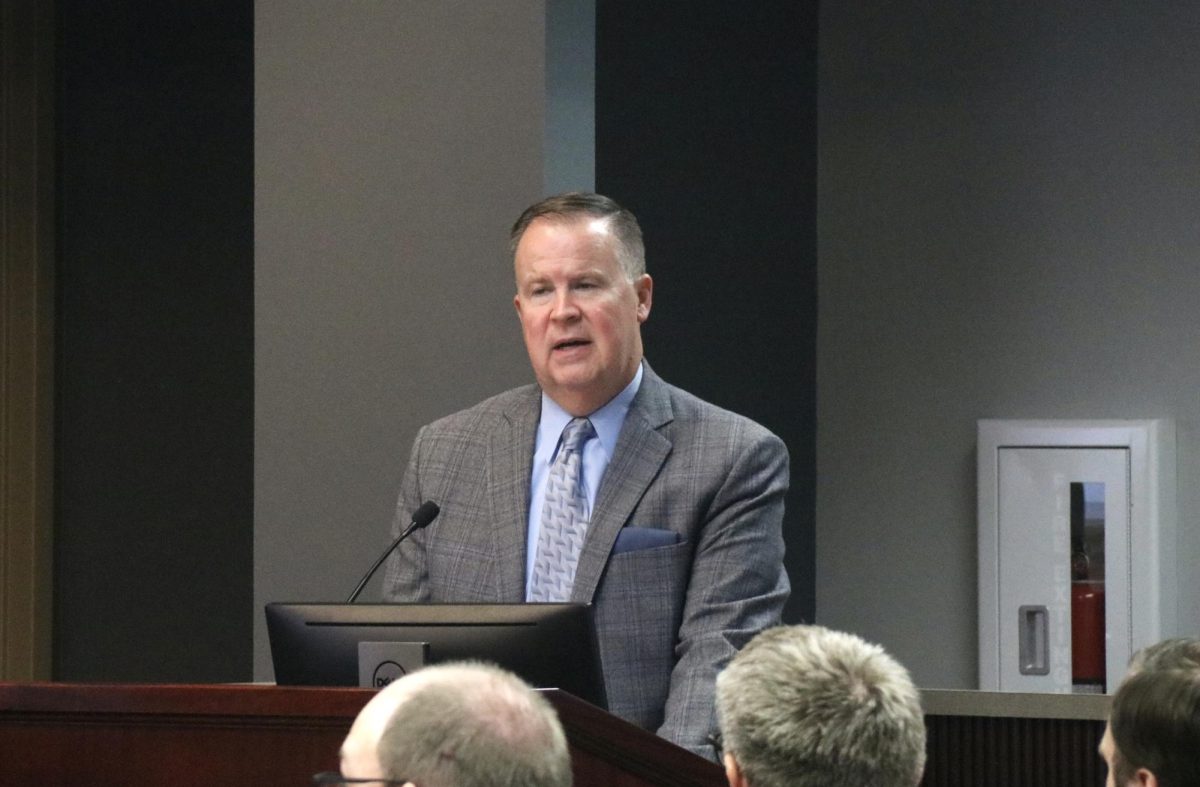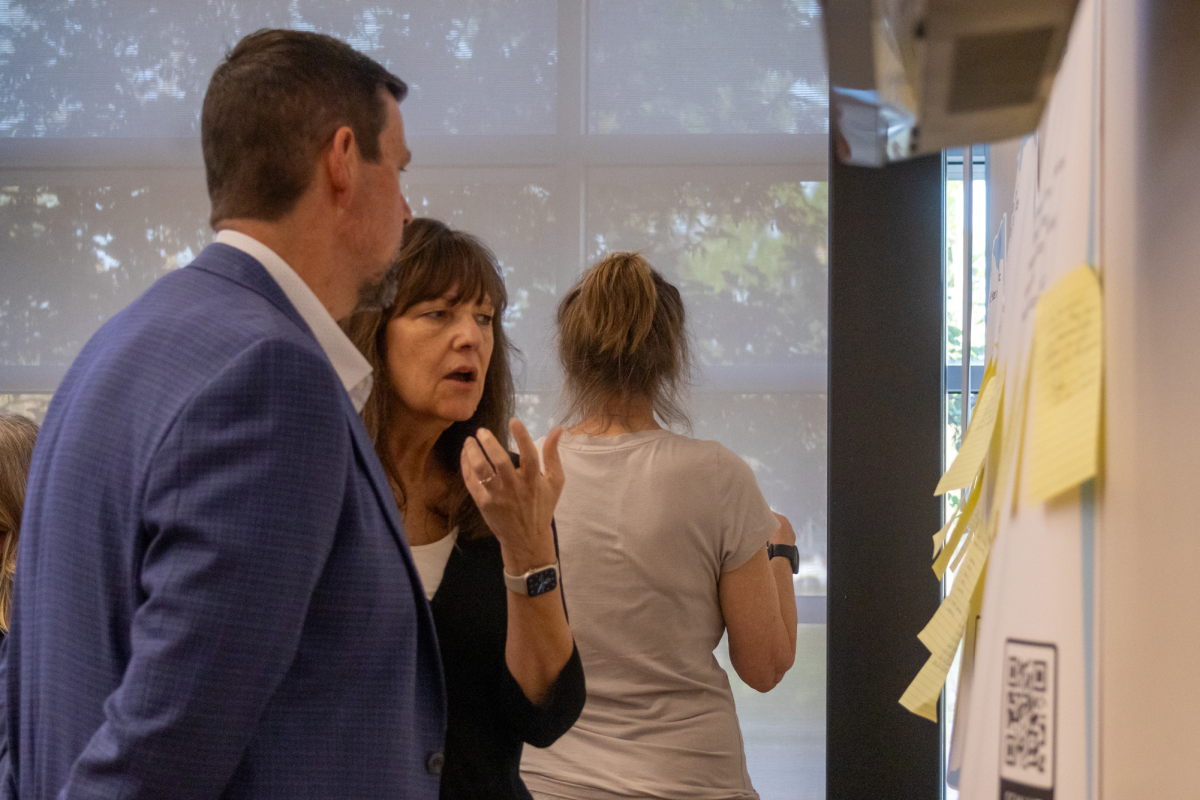At the start of each class, students now enter classrooms with a new routine. Instead of heading straight to their desks, they make a quick detour to house their phones in designated pockets.
Starting the 2024-25 school year, Coppell ISD has implemented stricter phone policies throughout its secondary campuses. Students are required to keep their phones in caddies and advised not to use phones during the school day in the middle schools.
After an increase in cheating and attendance issues, CISD middle schools, CHS9 and Coppell High School are implementing stricter phone policies, hoping for increased student focus and more efficient use of class time. CHS administration has asked teachers to more diligently use phone caddies during class as a means of checking attendance and minimizing distractions.
For CHS AP Macroeconomics and Microeconomics teacher Dani Roseberry, the policy has maximized instructional time as well as her students’ focus levels.
“I have noticed that people have used their time more efficiently and more productively, but I have also noticed that teachers will allow students to access their phones when they finish their work,” Roseberry said. “So, students have a higher appreciation of their phone time as well. People are both more productive in class and in their personal phone use time.”
The middle schools are emphasizing their prohibition of cell phone use during class. Coppell Middle School North and Coppell Middle School West have extended the ban to passing periods, and CMSN and Coppell Middle School East have extended it to lunch. CMSE offers alternatives during lunch to keep students engaged and satisfied.
CMSE Principal Melissa Arnold reports that music is played during lunch, and many of the students enjoy dancing. The school also offers the library’s quiet spaces to read and the counselor’s office as well for a relaxing environment.
According to CISD, for every percent decrease in student attendance, the district loses about $900,000. To help address this issue, phone pockets in class have become a common and efficient way for teachers to take attendance.
According to CHS Principal Laura Springer, the phone policies have led to increased student interaction.
“It has been so much better walking into classrooms,” Springer said. “I’m actually seeing kids talk to each other as opposed to sitting there on a phone while somebody’s talking to them, and I love that part of it. I want students to be able to speak to people, and I think it’s improved people’s ability to look at and talk to each other.”
Students are adjusting to stricter phone caddy implementation this year.
“I have seen a lot of the students still refuse to put their phones up in the caddy until teachers start taking it for attendance,” junior Ayla Elahi said. “I’m surprised that even the more relaxed teachers are still enforcing the policy.”
With phones away, many students are able to focus more deeply on their work.
“Having the phone in a caddy or somewhere else helps me because I’m less distracted,” senior Swathi Karthikeyan said. “If you’re done with your work, however, I think you should be able to get back your phone.”
Though the phone policy seems to be having some benefits, some students also feel they have been introduced to new problems.
“You feel a little bit more stressed when you have to check all of your messages and updates in a short passing period,” Elahi said. “Also, I think it will lead to more of a negative feeling between teachers and students because it shows that even though we’re in high school and we’re becoming adults, we are not trusted enough to handle our own issues. In college, we’re not going to have to put our phones up in caddies.”
The announcement of phone rules surprised some students, as they were not aware of the restrictions prior to the school year. Some students even feel there could have been another way to implement the policy.
“I feel like we should constantly hear students’ feedback through surveys and ask about their perspective, because I don’t think students had much of a say regarding the phone policies,” Karthikeyan said. “Instead of it just being a broad rule, it could be a different rule for each classroom, depending on how the teacher wants to go about it.”
As the policy proceeds, school administrators seek to keep students away from distractions and stay engaged in learning as much as possible.
“By keeping the policy, the outcome will be that our behaviors will show more respect to the learning space but also to the personal space,” Roseberry said. “Sometimes it’s healthy to have boundaries between those.”
Follow Deepali Kanchanavally (@deepali0914) and @CHSCampusNews on Twitter.











